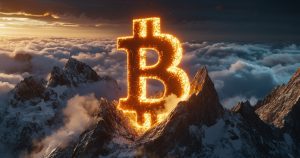MetaMask and Infura came under fire from Crypto Twitter as it accidentally blocked Venezuelan users from accessing its service while attempting to comply with new sanctions announced by the United States of America.
Infura claimed that it had changed specific settings too broadly and that the mistake has since been required. However, the incident has also brought into focus the turmoil and confusion recent events between Russia and Ukraine have caused in the crypto space.
New Geoblocks To Blame
Infura is owned by Ethereum conglomerate ConsenSys and had applied certain geoblocks after the United States had announced new sanctions due to the ongoing conflict between Russia and Ukraine. However, Infura, while complying with the sanctions, applied the geoblocks too broadly, as revealed in a series of tweets, resulting in users from Venezuela also getting their access cut off.
The mistake has since been rectified but brought into sharp focus a point of failure, which critics pointed out should not be present in something that has been billed as the “uncensorable” internet. A ConsenSys spokesperson stated,
“Infura closely monitors changes to U.S. sanctions programs announced by the Office of Foreign Assets Control and narrowly tailors its internal controls to comply with the law. Currently, those regions are Iran, North Korea, Cuba, Syria, and the Crimea, Donetsk, and Luhansk regions of Ukraine.”
Intense Scrutiny On Crypto To Comply With Sanctions
Infura’s blockade of certain regions comes after regulators have put increased pressure and scrutiny on the crypto industry and its compliance with sanctions imposed by the United States, European Union, and other countries against Russian businesses and entities.
Already, lawmakers such as U.S. Senator Elizabeth Warren and German Finance Minister Christian Lindner have highlighted their concerns, stating that Russia could use crypto to mitigate the effects of the sanctions and undermine them. Sources from the crypto space have indicated that exchanges could block sanctioned individuals but have so far not blocked entire nations.
Mistake Causes Significant Uproar
By design, MetaMask requires Infura to be able to access the Ethereum blockchain. Until users have altered this, MetaMask is also subject to Infura’s geoblocks. This was on full display for crypto Twitter when Infura cast too wide a net, albeit mistakenly, while attempting to comply with sanctions, leading to users in Venezuela being cut off. Rumors swirled that there was a complete blockade, and commentators also incorrectly alleged that MetaMask was barred in a country known for crypto booms and where the United States had imposed some sanctions.
However, MetaMask issued a swift clarification, stating the following in a tweet,
“In changing some configurations as a result of the new sanctions directives from the United States and other jurisdictions, we mistakenly configured the settings more broadly than they needed to be.”
MetaMask also acknowledged the uproar in the community and apologized, stating that the issue had been rectified while explaining it relies on Infura for blockchain access. CEO of SmartDeFi, Kieran Daniels, tried to sum up the events stating that MetaMask is still a decentralized tool. However, the wallet’s default connections are not.
Open Season For Sanctions
The entire event drew focus on the topic of running a seemingly uncensorable financial service through centralized means. Companies such as Infura are critical, providing developer and infrastructure services to a host of Ethereum projects. However, the company is also a US-based company that is subject to federal law, which is why it has to comply with sanctions. CEO of Ankr, Josh Neuroth, summed up the situation,
“As a centralized entity funded by investors like JPMorgan, infrastructure providers like Infura are subject to regulatory concerns. This over-reliance on centralized service providers goes against everything that Web 3 stands for and is meant to be – and represents a central point of failure that shouldn’t exist in the first place.”
Ankr is also a US-based company, and when asked if it would also comply with directives from the U.S. Treasury Department, Neuroth replied in the affirmative but stated that the team is working towards moving to a protocol existing in a network run by a DAO and not a centralized company.
Disclaimer: This article is provided for informational purposes only. It is not offered or intended to be used as legal, tax, investment, financial, or other advice.





















